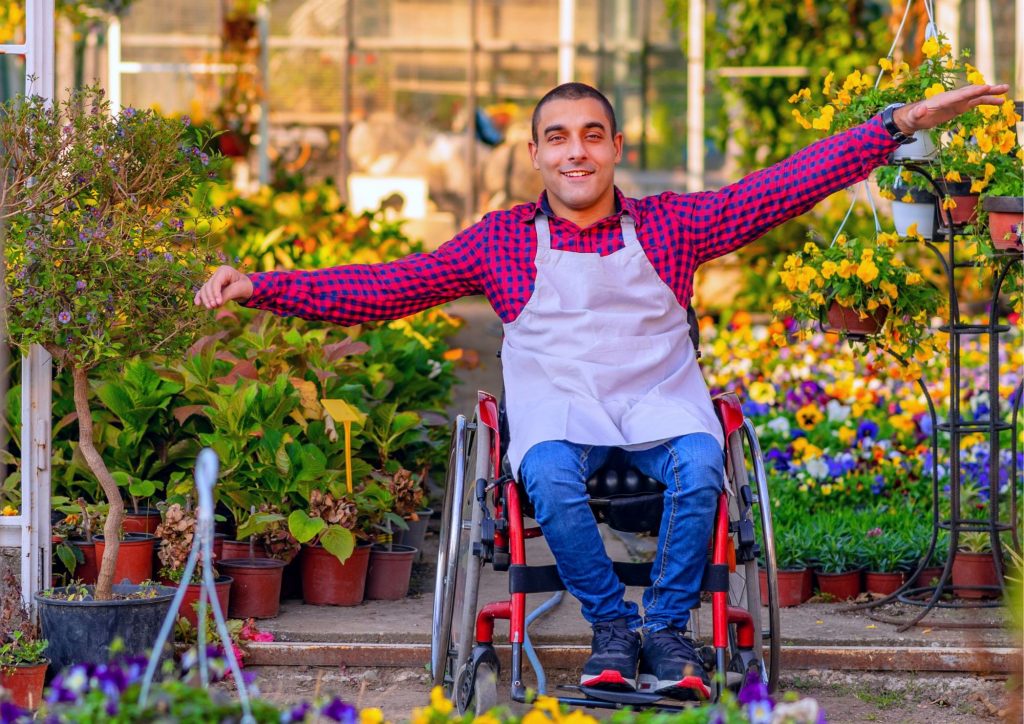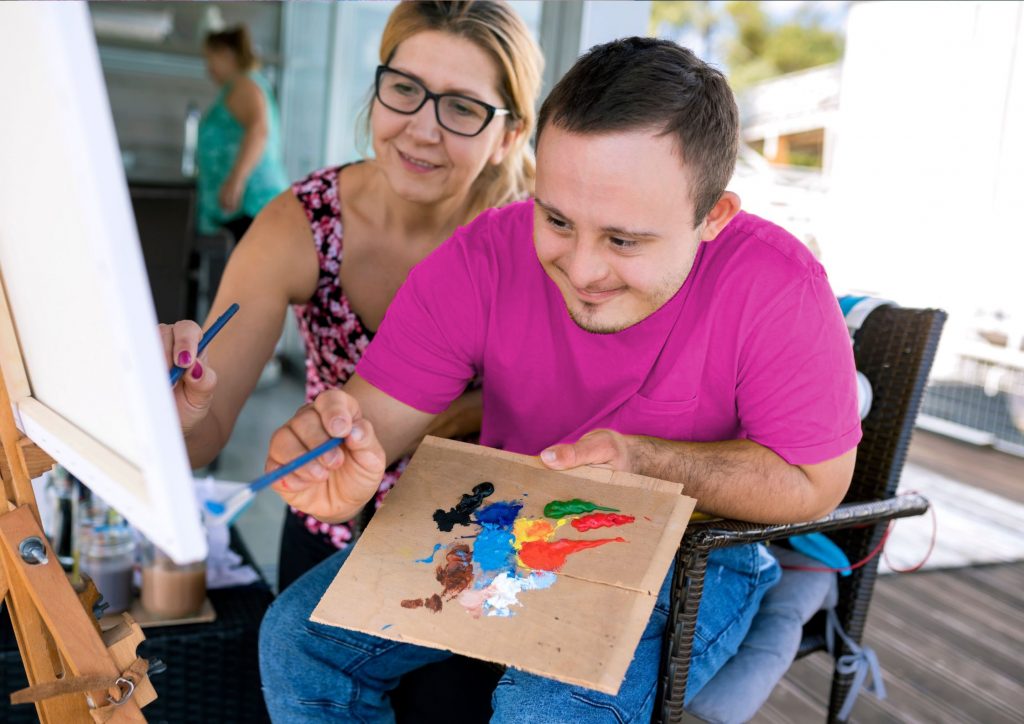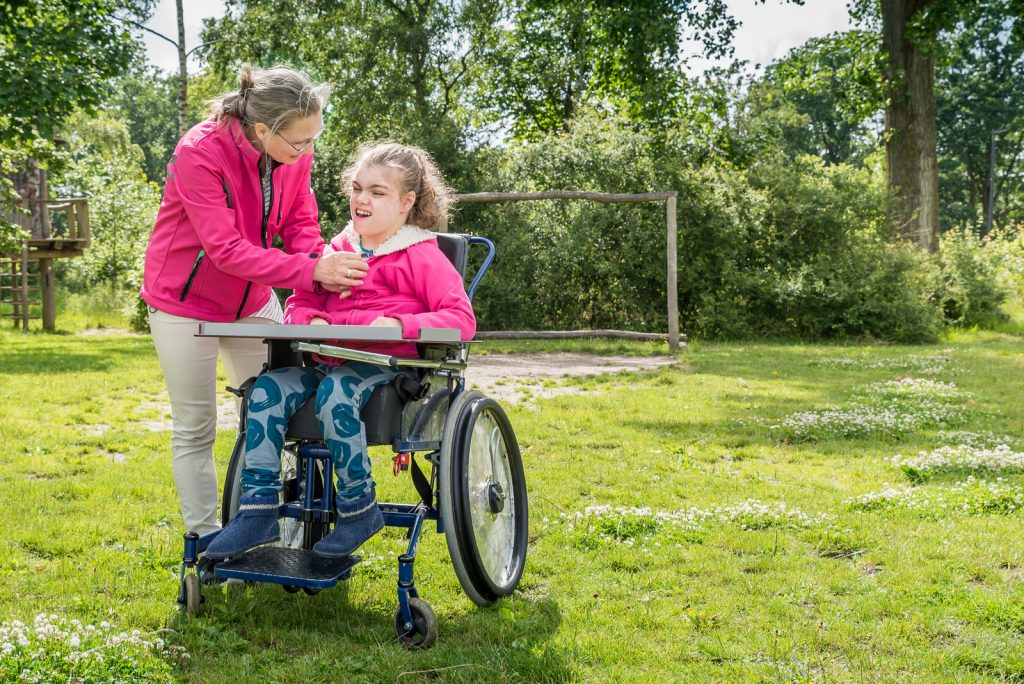Embracing Diversity: The Power of Disability Inclusion
“One person can make a difference, and everyone should try.”
(John F. Kennedy)
Disability inclusion stands out as a crucial part of creating a truly equal and supportive society for people regardless of their ability.
In Australia alone, there are more than 4 million people who have a disability and an estimated 1.3 billion people experience significant disability in the world. This is why on the 3rd of December each year, International Day of People with Disability, provides us all a reminder to keep focusing on how we as a society can strive for inclusivity.
The below blog will explore the significance of disability inclusion and the positive impact we can have when embracing diversity in all its forms.
Understanding Disability Inclusion
Disability Inclusion in the Workplace
Inclusive Educational Programs
Advocacy for Disability Inclusion
Understanding Disability Inclusion
Disability inclusion is a dedication to creating an environment where every individual, regardless of their ability, feels valued, and respected, and enjoys equal access to opportunities, and is a key goal when striving to create a world where individuals of all abilities can lead lives filled with Positivity, Possibility and Purpose.
Some key elements of disability inclusion include:
Equal Opportunities
Ensuring that individuals with disabilities have the same opportunities for education, employment, and participation in social activities as those without disabilities.
Accessibility
Creating physical, digital, and communication environments, which are accessible to everyone, regardless of their abilities. This may involve things like ramps, elevators, accessible websites, and alternative formats for information.
Anti-discrimination
Challenging and eliminating discrimination and stigmatization based on disability. This includes addressing stereotypes and biases that may hinder the full inclusion of individuals with disabilities.
Support Systems
Establishing support systems that accommodate the unique needs of individuals with disabilities. This may involve reasonable accommodations in the workplace or educational settings.
Promoting Awareness
Educating the public about the diverse abilities of individuals with disabilities, fostering empathy, and dispelling misconceptions.
Legal Protections
Implementing and upholding laws and policies that protect the rights of individuals with disabilities, ensuring they are not subjected to discrimination and have access to the same opportunities as others.
Disability inclusion recognises that everyone has unique strengths and contributions to make, and by creating inclusive environments, we enrich our communities and promote a more equitable and just society.


Disability Inclusion in the Workplace
Prioritising disability inclusion in the workplace has become a crucial part of promoting diversity and inclusion within overall society.
Companies that commit to fostering diverse and inclusive workplaces not only contribute to broader societal progress but also unlock a range of advantages that benefit both employers and employees including:
Improving Productivity and Performance
Employees with different abilities bring a wide range of perspectives and problem-solving approaches to a business. This diversity of thought can lead to the generation of novel ideas and inventive solutions, propelling any company ahead in a rapidly evolving business landscape.
Studies consistently show that inclusive workplaces are more productive. When individuals with diverse abilities are given the tools and support they need to thrive, they often exceed expectations. This heightened productivity can positively influence overall company performance and competitiveness.
Embracing disability inclusion opens the door to a vast and often overlooked talent pool. Many individuals with disabilities possess unique skill sets, honed through overcoming challenges and adapting to different circumstances in their daily lives. By actively recruiting from this untapped talent pool, organisations can gain a competitive edge by leveraging skills that may be scarce in a more conventional hiring approach.
Encouraging a Positive Corporate Culture
A commitment to disability inclusion contributes to fostering a positive corporate culture. This culture, built on respect and acceptance, not only attracts top talent but also creates an environment where employees are motivated to give their best.
A workplace that values diversity and inclusion fosters a sense of belonging among all employees. This inclusive environment can lead to increased employee engagement, job satisfaction, and loyalty. Employees are more likely to stay with a company that prioritises their well-being and creates a supportive atmosphere.
Companies that proactively work towards creating environments where everyone, regardless of their abilities, can thrive, position themselves as leaders in innovation, employee satisfaction, and overall business success.


Inclusive Educational Programs
Inclusive education involves creating learning environments that accommodate the needs of students with disabilities, ensuring that they have equal access to education and extracurricular activities.
The educational adjustments schools make must reflect society’s ever-evolving landscape. Inclusive programs are designed to break down barriers, ensuring that students of all abilities have equal access to quality education and opportunities for personal and academic growth and can include:
Diverse Learning Environments
Inclusive educational programs create diverse learning environments that welcome students with various needs and learning styles. These programs foster an atmosphere of inclusivity where every student is valued for their unique contributions through tailored support from educators to ensure students with disabilities receive the support required to actively participate in academic and extracurricular activities. This might include assistive technologies, specialised teaching methods, or individualised learning plans.
Diverse learning environments recognise that learning extends beyond academic achievement. They prioritise holistic skill development, encompassing social, emotional, and practical skills. By embracing a comprehensive approach to education, these programs equip students with the tools they need to navigate not only academic challenges but also the complexities of life beyond the classroom.
Fostering a Culture of Respect
Inclusive education promotes peer learning and collaboration. Students with diverse abilities learn side by side, fostering a culture of mutual support and understanding. This collaborative approach breaks down social barriers, promoting empathy and creating a foundation for lifelong connections actively cultivating a culture of respect and acceptance.
Students are taught not only to appreciate diversity but also to celebrate it. This positive shift extends beyond the classroom, influencing the broader school community and creating an environment where everyone feels valued.
Inclusive educational programs represent a commitment to providing an equitable and enriching learning experience for all students. As these programs continue to evolve, they contribute not only to the academic success of individuals with disabilities but also to the creation of a more inclusive society that values and celebrates diversity in all its forms.


Advocacy for Disability Inclusion
Advocacy for disability inclusion is a powerful way to break societal barriers and promote change. People, organisations, and communities must actively challenge the current practices and policies that do not serve people living with disabilities or the wider community.
Advocates become the voices that demand not only recognition but also concrete action. By pushing for legislation that safeguards the rights and dignity of individuals with disabilities, advocates pave the way for a more inclusive and equitable society.
Advocating for disability inclusion can include:
Fostering Awareness and Education
By raising awareness about the challenges faced by individuals with disabilities, advocates contribute to breaking down stereotypes and misconceptions. Educational initiatives help foster empathy and understanding, creating a foundation upon which inclusivity can flourish.
Advocates will actively listen to the experiences and perspectives of individuals with disabilities, lending an empathetic ear and amplifying their voices is how advocates not only become a force for change but, also empower people with disabilities to speak up knowing they are supported.
Advocating for Change
Advocacy acts as the driving force behind change and paves the way for a society where the full potential of every individual is recognised and celebrated.
Advocates contribute to creating environments where individuals with disabilities can thrive. This involves not only advocating for structural changes but also fostering a culture of respect, understanding, and acceptance by challenging discriminatory practices, ensuring that workplaces are accessible, and promoting educational environments, which can accommodate diverse abilities.
Advocates are also key in driving policy changes that prioritise and protect the rights of individuals with disabilities. This commitment to policy reform is pivotal in ensuring that inclusivity is not just an idea but rather, a reality.
In this collaborative effort, the journey towards real change and disability inclusion becomes a collective effort from individuals, organisations and communities who will continue to empower people living with disabilities while promoting inclusivity.


Disability inclusion isn’t just a social obligation; it’s a dedication to fostering environments where everyone, regardless of ability, enjoys equal opportunities and can continue to lead lives filled with Positivity, Possibility and Purpose.
At Nurse Next Door, we are passionate about Making Lives Better.
If your are looking at Caregiving as a Career™ click here to learn more and see what opporunitites are available in your local area.
If you require care in your own home, on your own terms, contact us 24/7 on 1300 600 247 to discuss how Nurse Next Door can help you keep doing what you love.
